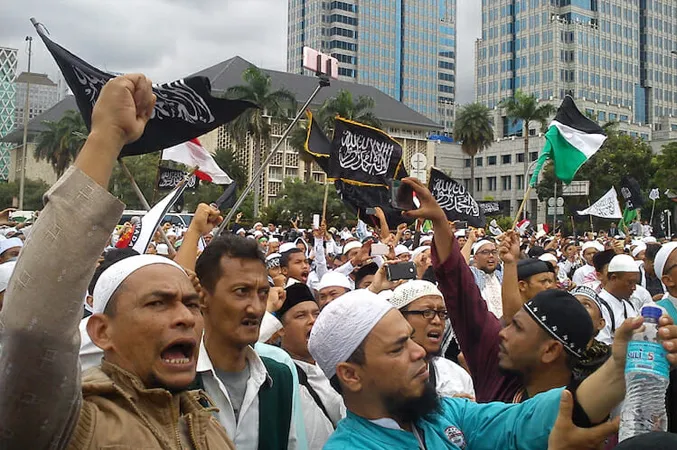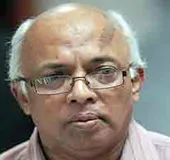
A sense of calm appears to have descended on Bangladesh of late. With the decision by the handful of lawmakers belonging to the Bangladesh Nationalist Party (BNP) and the Gano Forum, both of which were part of the Jatiya Oikya Front or national unity front formed last year. The front was formed to challenge the ruling Awami League at the December election and join Parliament. However, the government is in a triumphant mood which is understandable for the good reason that the ruling party, which has held uninterrupted power since January 2009, has been busy since the elections to convince the global community that it won the vote fair and square. Of course, that does not wish away the fact that there have been the many questions from both local and foreign observers about the credibility of an electoral exercise where the opposition found itself unable to campaign freely prior to the voting.
Now that the opposition MPs, except for BNP secretary general Mirza Fakhrul Islam Alamgir, have been sworn in over the earlier decisions by their parties not to have them join the House, the newly elected Parliament or Jatiya Sangsad has achieved the sort of roundness the ruling Awami League had been working for.
Now that the opposition MPs, except for BNP secretary general Mirza Fakhrul Islam Alamgir, have been sworn in over the earlier decisions by their parties not to have them join the House, the newly elected Parliament or Jatiya Sangsad has achieved the sort of roundness the ruling Awami League had been working for. In a country where historically the voice of the opposition has largely been ignored in the legislature, it is to be seen to what extent these MPs, who are seven in all, can have any impact on parliamentary proceedings. One ought to remember that they are part of a 300-seat law-making body (and that does not take into account the 50 seats reserved for women chosen through the proportional strength of the parties represented in the House). In a good number of ways, the present Parliament is somewhat a reminder of the situation which emerged following the first general election in independent Bangladesh in March 1973. At the time, the ruling Awami League, having led the nation to battlefield victory against Pakistan in 1971, trounced all other parties to romp home with 297 seats out of an altogether 300.
Politics, in a sense, can in these times be considered to have fallen back on a state of calm in the country. The Jatiya Party of former military ruler Hussein Muhammad Ershad, having been part of a curious mix of both opposition and ruling party ally in the last Parliament, is clearly feeling its way. General Ershad’s pronouncement following the December election, which gave the Awami League-led alliance 288 seats in a House of 300, that the JP would play the role of the opposition in Parliament has not quite convinced people that the party is indeed equipped to play that role. Historically, the two political parties which have played assertive roles in the opposition, depending on their positions at given periods in time, have been the Awami League and the BNP. With the BNP now in a state of forced enervation, its leader Khaleda Zia in prison and her heir apparent Tarique Zia a fugitive from the law in London, the space for an effective opposition in Parliament is as good as non-existent. Ershad’s JP has never enjoyed the degree of popular support the BNP has among the population. Not many expect the JP to effectively keep the government on its toes despite an ailing Ershad’s decision to transfer authority over the party to his younger sibling G.M. Quader.
Parliamentary calm notwithstanding, the government of Prime Minister Sheikh Hasina has some rather sensitive issues which call for deft handling in the immediate future. The Easter Sunday terror attacks by Islamist militants in Sri Lanka have renewed concerns in Bangladesh over the presence of groups of militants possibly engaged in planning attacks in future.
Parliamentary calm notwithstanding, the government of Prime Minister Sheikh Hasina has some rather sensitive issues which call for deft handling in the immediate future. The Easter Sunday terror attacks by Islamist militants in Sri Lanka have renewed concerns in Bangladesh over the presence of groups of militants possibly engaged in planning attacks in future. The Sri Lanka incident has heightened the state of security in Bangladesh and within days of the tragedy led to police operations which ended up killing some alleged terrorists when they blew themselves up rather than surrender. Among the dead were children. That was followed by ominous messages posted on social media by a previously unknown militant organization, Al Mursalat, promising to be in the country soon, clearly to carry out acts of terror. ‘Amra aashchhi’ --- we are coming --- was their message. Bangladesh’s security agencies are not taking it lightly, given particularly the ramifications of the terror attack which left more than a score people dead at the Holey Artisan Bakery in 2016. In these past three years, a consistent state of alert has underlined Bangladesh’s security strategy. With radicalism on the rise, given the fact that such medieval outfits as the Hefazat-e-Islam, despite their peace with the government, have gone on spouting ideas which militate against secular politics in the country, there is a major reason for the government to watch its back.
In the region of foreign policy, the government has certainly made a major move through identifying with China’s Belt and Road Initiative. A couple of weeks ago, Gowhar Rizvi, the Prime Minister’s advisor for international affairs, let it be known that Bangladesh welcomed the BRI, a position which now makes it imperative for the country to redefine its relations with its neighbours in the region. Over the past couple of years, despite initially keeping the Chinese at bay over the BRI, the Hasina government has been engaged in a search for a more balanced foreign policy. So far its ties with both Beijing and Delhi have been on a more or less even keel, but there is little question that the BRI move cannot have pleased the Indian establishment. Bangladesh will, both in the interest of playing a more involved role in foreign affairs and in the interest of its economic future, need to stay clear of the debt trap that the BRI has lately pushed countries like Sri Lanka, Pakistan, Djibouti, the Maldives, among other states, into. With an economy that has been showing signs of progress, Dhaka can ill afford to get into a situation where its closeness to China could end up in a straitjacket, domestically as also regionally, for it. The Hasina government knows it. What it also knows is its need for a credible strategy which will keep its affairs, economic as well as diplomatic, free of any probable vulnerability.
With local politics now in its effective control, the Bangladesh government will need to look to the world beyond its frontiers.
The views expressed above belong to the author(s). ORF research and analyses now available on Telegram! Click here to access our curated content — blogs, longforms and interviews.
 A sense of calm appears to have descended on Bangladesh of late. With the decision by the handful of lawmakers belonging to the Bangladesh Nationalist Party (BNP) and the Gano Forum, both of which were part of the Jatiya Oikya Front or national unity front formed last year. The front was formed to challenge the ruling Awami League at the December election and join Parliament. However, the government is in a triumphant mood which is understandable for the good reason that the ruling party, which has held uninterrupted power since January 2009, has been busy since the elections to convince the global community that it won the vote fair and square. Of course, that does not wish away the fact that there have been the many questions from both local and foreign observers about the credibility of an electoral exercise where the opposition found itself unable to campaign freely prior to the voting.
A sense of calm appears to have descended on Bangladesh of late. With the decision by the handful of lawmakers belonging to the Bangladesh Nationalist Party (BNP) and the Gano Forum, both of which were part of the Jatiya Oikya Front or national unity front formed last year. The front was formed to challenge the ruling Awami League at the December election and join Parliament. However, the government is in a triumphant mood which is understandable for the good reason that the ruling party, which has held uninterrupted power since January 2009, has been busy since the elections to convince the global community that it won the vote fair and square. Of course, that does not wish away the fact that there have been the many questions from both local and foreign observers about the credibility of an electoral exercise where the opposition found itself unable to campaign freely prior to the voting.
